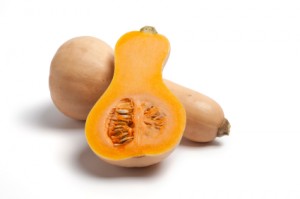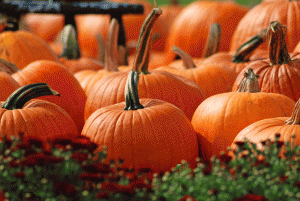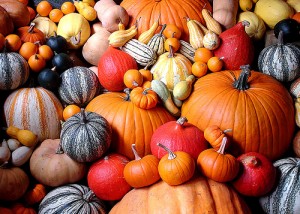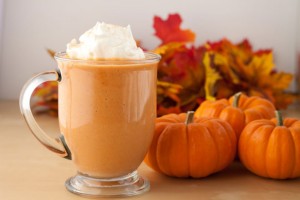Whether the flesh or the seeds of the pumpkin, the ultimate autumn vegetable, can provide significant benefits to our health.
- When shopping, try to choose the pumpkin to be tough with skin clean without dents.
- The stem should be properly fixed, as if removed, there is a strong possibility that fungal infections can be caused by the wound, resulting in destruction.
- Unfortunately there is no obvious external sign of how mature is the pumpkin. If perchance you have a pumpkin with greenish flesh near the peel, remove it and proceed normally.
- Pumpkins can be maintained in an environment dark, cool and dry for all winter.
- The pumpkin that has been cut, can be preserved in the refrigerator for a few days, wrapped in film.
- Grated, can be maintained in sachet food for at least two months in the freezer.
- If you cut it in pieces and blanch it for 2 minutes in boiling water, can be kept for several months in the freezer, always in a bag.
- A good solution, too, if you want to use a certain amount, are the baby or mini pumpkins on the market and their weight does not exceed 1 – 1½ kg.
- Also, you may find fragmented, half or smaller pieces, usually wrapped in transparent film.
The round pumpkins are usually sweeter. But an oblong pumpkin can be equally or more sweet as the taste depends on the seed, the soil in which it was cultivated and on climatic conditions.
Generally, the deeper the color of the flesh, the sweeter the taste. However, only after testing we can be sure of the intensity of sweetness.
There is no rule about which pumpkin is appropriate for sweets, and which for savory recipes. All species can be used for desserts or foods as long as we handle them appropriately.
 The nutritional composition of pumpkin
The nutritional composition of pumpkin
High content in carotenoids: Pumpkins owe their bright orange color in the high percentage of carotenoids they contain. Carotenoids prevent free radicals in the body and help prevent premature aging, cardiovascular diseases and other infections. Also, pumpkins are rich in lutein and zeaxanthin, which protect the eyes from free radicals and prevent the formation of cataracts and degeneration of the eye tissue.
Protein: The pumpkin is a rich source of protein. 28g pumpkin seeds contain about 7 grams of protein. Their oil has a high content of phytosterols or vegetable fatty acids and their chemical composition is the same as cholesterol. Phytosterols can replace cholesterol in the body and help reduce blood cholesterol levels.
Essential fatty acids: Pumpkin seeds are a rich source of essential fatty acids which have many health benefits. Protect from serious health ailments such as high blood pressure, arthritis and cancer and promote healthy and beautiful skin, brain improvement and other health benefits.
Vitamin A: The pumpkin is rich source of vitamin A. Regular consumption of (seeds and flesh ), can promote eye health and boost the immune system dramatically.
Vitamin C: Vitamin C helps fight free radicals, improves the immune system and promotes collagen production. The high vitamin C content in gourds, also offers protection against various cancers.
Magnesium: Both the flesh and the seeds of pumpkin, are rich in magnesium, which is important for various biological functions. Magnesium is also essential for healthy bones and teeth.
Potassium and Zinc: The pumpkin also has potassium and zinc. Studies show that a diet rich in potassium, can prevent the onset of cardiovascular disease and hypertension. Zinc is important for bone density, especially for individuals at risk for osteoporosis. It strengthens the immune system and promotes reproductive health.
Fiber: The flesh of pumpkin is very low in calories and contains copious amounts of extremely important dietary fiber. It is effective for the treatment of gastrointestinal disorders, such as constipation, dyspepsia etc. The high amount of fiber also helps to reduce LDL ( bad ) cholesterol in the blood and in the regulation of blood sugar levels.
Prostate Cancer: The protecting compounds present in pumpkin seeds and called phytosterols, may reduce the risk of prostate cancer. Shrinking the prostate and stimulate the secretion of chemical substances that protect against conversion of testosterone to dihydrotestosterone ( DHT ). High levels of DHT, can cause enlargement of the prostate gland.
Anti-inflammatory action: Beta-carotene is found in the seeds and the flesh of pumpkin, has antioxidant and anti-inflammatory properties. Regular consumption of pumpkin, may protect against inflammation in the joints and arthritis. Pumpkins provide immediate relief to inflammation, without the harmful side effects of anti-inflammatory drugs.
Good for the skin: The high amount of vitamin A, C and E and zinc in the pumpkin, make it an excellent choice for those who want to have a healthy and glowing skin. Consume a cup of pumpkin seeds per day to prevent the appearance of wrinkles and keep your skin hydrated.
It prevents the formation of kidney stones: Eat 5-10 grams of pumpkin seeds each day as well to stimulate the kidneys and to prevent the formation of calcium oxalate stones.
Fights depression: The pumpkin flesh contains L- tryptophan, a chemical compound that induces feelings of prosperity and happiness. Including pumpkin in our daily diet, we will improve our mood and prevent depression.
Treatment of pests: In various cultures, especially China, pumpkins used to treat infections caused by cestodes and other pests.
Diuretic action: The gourds are natural diuretics and help eliminate toxins and unwanted waste from the body, leaving us refreshed and healthy.




